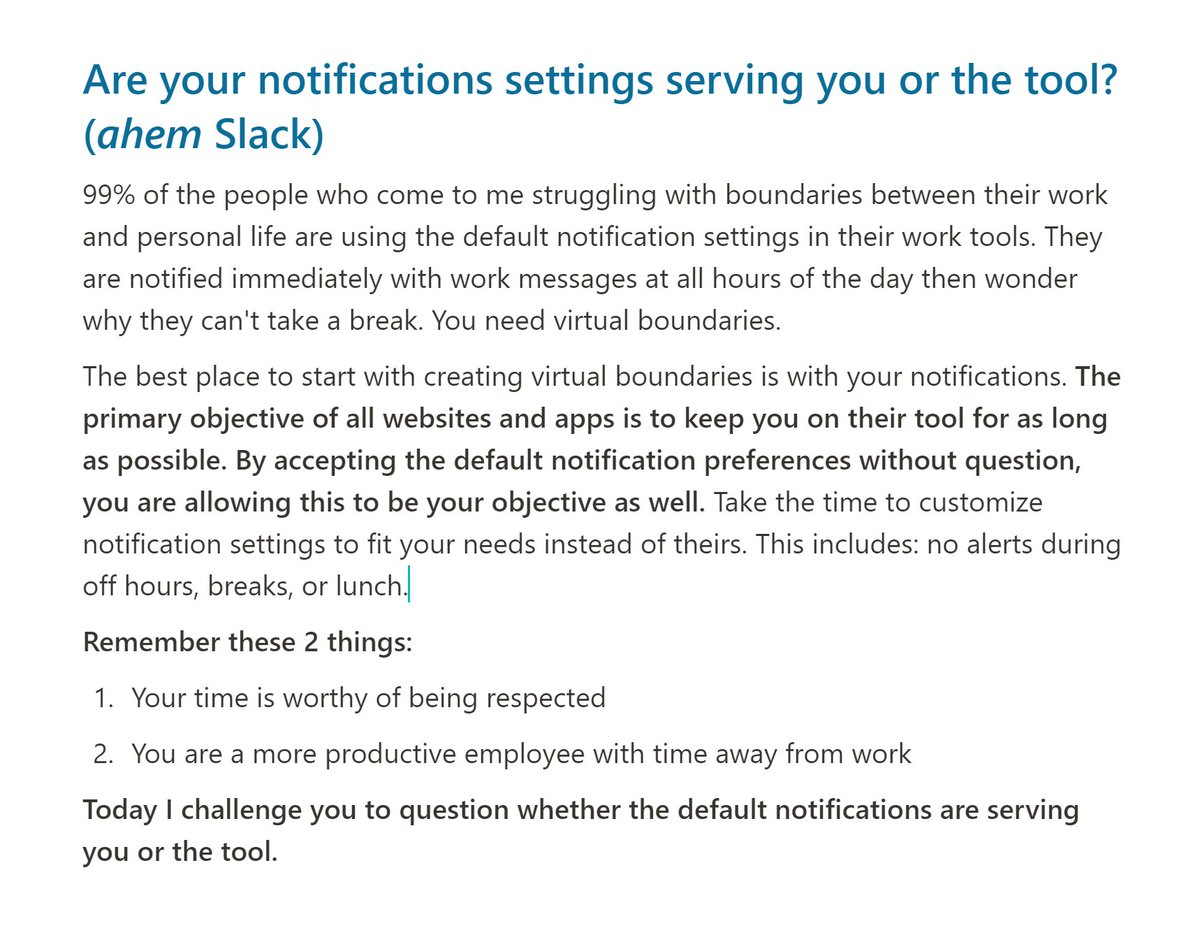
You all have asked for it. And now it's here...
A thread on my productivity and planning system:
⚠️ Warning: I juggle an excessive schedule so my planning is equally excessive. The full system probably isn't right for most people, but it's perfect for me. Okay, let's go.
A thread on my productivity and planning system:
⚠️ Warning: I juggle an excessive schedule so my planning is equally excessive. The full system probably isn't right for most people, but it's perfect for me. Okay, let's go.

Step 1: Consolidate the asks
Make sure everything you need to do is in one place. The tool should be easily accessible, quick to add tasks, & have the ability to add labels and prioritize. Keep it separate from daily planning because it's overwhelming.
I currently use @todoist.
Make sure everything you need to do is in one place. The tool should be easily accessible, quick to add tasks, & have the ability to add labels and prioritize. Keep it separate from daily planning because it's overwhelming.
I currently use @todoist.
Step 2: Know your why
Who are you? What are your values? Why do you do what you do? Know this before anything else.
I use the Artist of Life workbook by @lavendaire and the Life Map by @muchelleb to determine this + my yearly/quarterly goals. I use @NotionHQ for high-level PM.

Who are you? What are your values? Why do you do what you do? Know this before anything else.
I use the Artist of Life workbook by @lavendaire and the Life Map by @muchelleb to determine this + my yearly/quarterly goals. I use @NotionHQ for high-level PM.


Step 3: Break it down
What you have now is a vision that feels far away. It's not actionable. It's time to make it so.
I use the Ink + Volt planner for breaking down big goals into monthly/weekly next steps. This is where I time block and design what I want my day to look like.
What you have now is a vision that feels far away. It's not actionable. It's time to make it so.
I use the Ink + Volt planner for breaking down big goals into monthly/weekly next steps. This is where I time block and design what I want my day to look like.

Step 4: Keep it at the forefront
So you have actionable items and an ideal schedule, now make it happen.
Use trigger routines to get the right mindset, timers to keep you on track, and virtual boundaries to keep you focused. List your top 3, do them, then refresh.
So you have actionable items and an ideal schedule, now make it happen.
Use trigger routines to get the right mindset, timers to keep you on track, and virtual boundaries to keep you focused. List your top 3, do them, then refresh.
I use a bullet journal throughout my day to track what I actually did. I'll then compare this list to the ideal time blocked Ink + Volt list later.
Step 5: Reflect
Too often people go on autopilot mode and keep doing things that aren't working. Instead, carve out time to reflect.
I do stream of consciousness journaling every morning. I also track moods/memories.
Too often people go on autopilot mode and keep doing things that aren't working. Instead, carve out time to reflect.
I do stream of consciousness journaling every morning. I also track moods/memories.
https://twitter.com/mar15sa/status/1343268779111886853?s=20
At the end of the week I compare my ideal schedule to what got done and answer:
• What isn't working?
• What am I avoiding?
• Have this week's actions meet my values and furthered my goals?
Then I plan the next week.
• What isn't working?
• What am I avoiding?
• Have this week's actions meet my values and furthered my goals?
Then I plan the next week.
Other tools I use:
• iPad + @Apple Pencil + @NotabilityApp for book notes, meeting notes, and items that get transferred immediately
• @Calendly for setting rules on when I accept meetings
• @GetRocketbook restickable whiteboard & paper for brainstorming (they're erasable)
• iPad + @Apple Pencil + @NotabilityApp for book notes, meeting notes, and items that get transferred immediately
• @Calendly for setting rules on when I accept meetings
• @GetRocketbook restickable whiteboard & paper for brainstorming (they're erasable)
• Google Keep for non-task things I need to remember
• @OneTab for saving and organizing tab groups
• @Pocket for keeping all the things I want to read in one place
• Archer & Olive or @Leuchtturm1917 notebooks for bullet journaling
• Muji pens for everyday writing
• @OneTab for saving and organizing tab groups
• @Pocket for keeping all the things I want to read in one place
• Archer & Olive or @Leuchtturm1917 notebooks for bullet journaling
• Muji pens for everyday writing
Areas I'm still working on:
Virtual calendar: I currently use @Google calendar, but it meets only the bare minimum requirements.
Timer: My beloved old one was deprecated 😭
OneTab: But for my entire desktop. I'd love for it to be for all applications and not just tabs.
Virtual calendar: I currently use @Google calendar, but it meets only the bare minimum requirements.
Timer: My beloved old one was deprecated 😭
OneTab: But for my entire desktop. I'd love for it to be for all applications and not just tabs.
My biggest tip is that productivity is less about which specific tool you use and more about how you use them. Be intentional.
Follow me for more productivity tips. What's your personal productivity system? I'd love to hear about it 😁
Follow me for more productivity tips. What's your personal productivity system? I'd love to hear about it 😁
• • •
Missing some Tweet in this thread? You can try to
force a refresh






